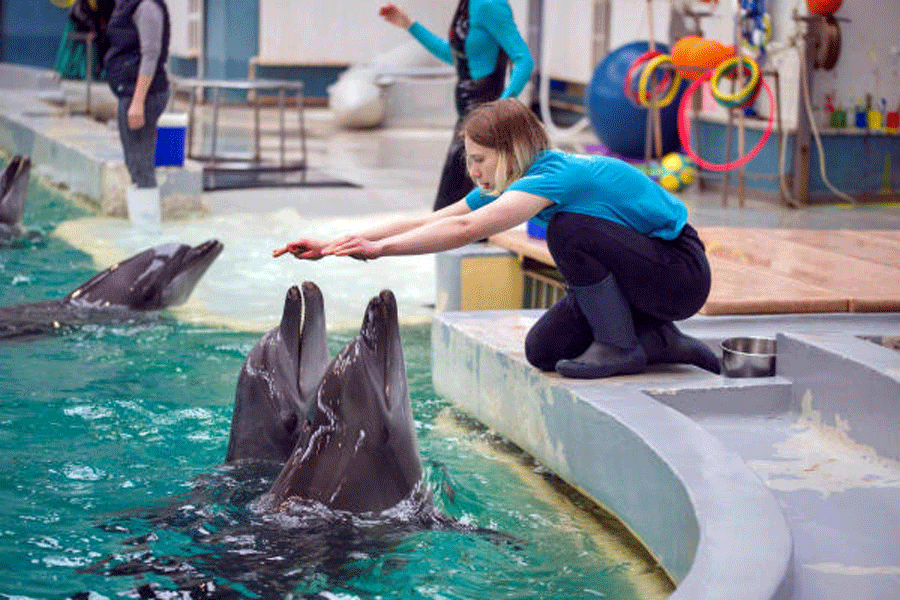The victim was found along a stretch of beach near the port city of Odesa in southern Ukraine early this summer, cause of death unknown.
As a light rain fell in the open field where the necropsy would take place, law-enforcement officials, a representative of the local prosecutors’ office and civilian witnesses gathered to watch.
On the beach was a harbour porpoise. They are washing up dead in droves on the shores of the Black Sea.
“Dolphins are not only cute creatures,” Pawel Goldin, 44, a doctor in zoology who specialises in marine mammal populations at the Ukrainian Scientific Centre of Ecology of the Sea, said before the necropsy. “They are keystone creatures for the marine ecosystem. If dolphins are in a bad condition, then the entire ecosystem will be in a bad condition.”
And the dolphins in the Black Sea are in trouble.
Ukrainian officials say their plight speaks to the savage toll that Russia’s war is taking on marine life and the environment more broadly — something they want to document for prosecution.
Currently, four specific acts — genocide, crimes against humanity, aggression and war crimes — are recognised as international crimes. Ukraine would like to add a fifth — ecocide — and it is setting out to build its case against Russia. The autopsy of the porpoise was part of that effort.
“We right now are developing the strategy for the prosecution of environmental war crimes and ecocide,” said Maksym Popov, an adviser to the prosecutor-general of Ukraine, who is specifically focused on environmental issues. “It’s not established yet.”
“The environment is often called the silent victim of war,” Popov said.
In a sign of the importance that Kyiv is placing on the issue, President Volodymyr Zelensky has included “immediate protection of the environment” in the 10-point peace plan Ukraine hopes will provide a foundation for negotiations to end the war.
Ruslan Strilets, Ukraine’s minister of environmental protection and natural resources, said in an interview that environmental investigators had collected data related to more than 900 cases of dead dolphins.
The destruction of the Kakhovka dam, which sent trillions of gallons of polluted water down the Dnipro river and into the Black Sea, was the most serious blow to the environment in an already ecologically catastrophic war. But even before then, dolphins were dying at an alarming rate.
Russian warships menacing the southern coast of Ukraine in the Black Sea make constant use of acoustic sonar signals that scientists say can interfere with dolphins’ sense of direction since they use their own natural sonar for echolocation.
Explosions, rocket launches and low-flying Russian fighter jets only add to the cacophony traumatising the dolphins, Goldin said. But he cautioned that it was far too early to directly link the dolphin die-off to a single cause. Maritime mines littering the coastal waters present new, deadly obstacles. Pollutants from explosives and fuel leaks, along with an assortment of flotsam associated with war, have spoiled vast swaths of the Black Sea Biosphere Reserve — Ukraine’s largest protected area that is classified as a “wetland of international importance”.
New York Times News Service











